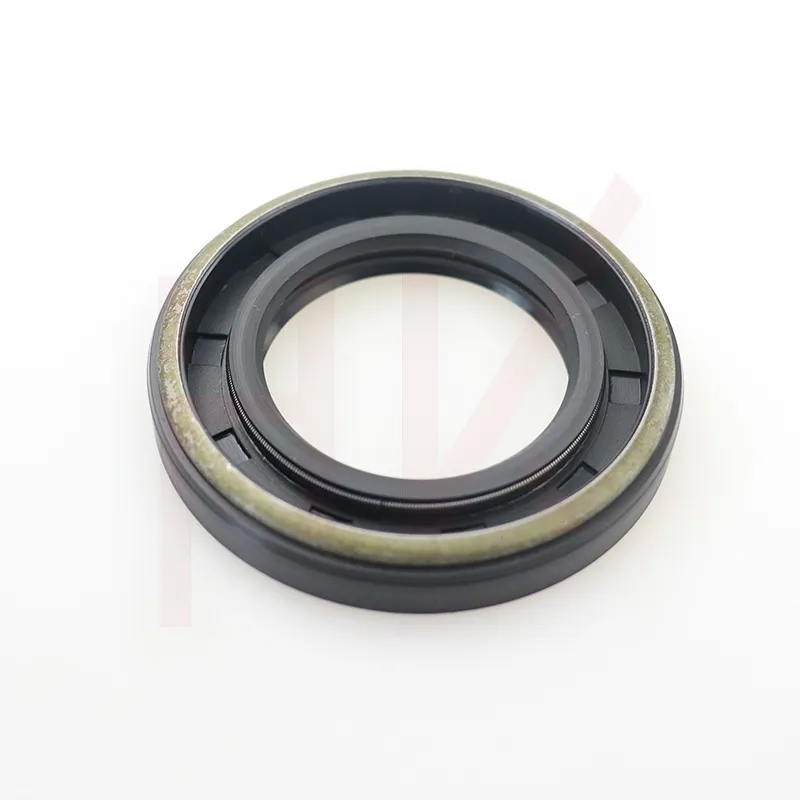Sep . 05, 2024 11:27 Back to list
oil pump seal
Understanding Oil Pump Seals Essential Components for Reliability
Oil pump seals play a crucial role in the operation and longevity of various machinery and vehicles. These seals are designed to prevent oil leaks, which can lead to serious mechanical failures, decreased efficiency, and costly repairs. Understanding the function and importance of oil pump seals is vital for anyone involved in vehicle maintenance or machinery operation.
What Are Oil Pump Seals?
Oil pump seals are typically made from rubber, silicone, or other durable materials designed to withstand extreme pressure, temperature variations, and exposure to various oils and lubricants. They form a barrier that prevents the oil from leaking out of the pump, ensuring that the lubrication system remains effective. This is essential not only for maintaining the right oil pressure but also for preventing contamination that could result from external elements entering the system.
Functionality and Importance
The primary function of an oil pump seal is to maintain the integrity of the oil containment system
. When the seal is functioning as it should, it helps to keep the oil inside the pump, allowing it to flow efficiently to various engine parts or components. A faulty or worn oil pump seal can lead to oil leaks, which, in turn, can cause several issues, including1. Engine Overheating Insufficient oil can cause the engine to overheat, leading to catastrophic failure. 2. Increased Wear and Tear Without proper lubrication, engine parts can wear out more quickly, leading to expensive repairs. 3. Pollution Oil leaks can lead to environmental pollution, affecting soil and water quality. 4. Reduced Efficiency Low oil levels can decrease the efficiency of machinery, leading to higher operational costs.
oil pump seal

Common Signs of Seal Failure
Recognizing the signs of oil pump seal failure is crucial for preventive maintenance. Some common indicators include
- Oil Leaks Visible spots or puddles of oil under the vehicle or machinery can signify a leaking seal. - Low Oil Levels Frequently needing to top up oil levels may suggest a leak caused by a failing seal. - Unusual Engine Noises Grinding or knocking sounds can indicate that the engine is not receiving enough lubrication.
Regular inspections and timely replacements of oil pump seals can prevent these issues before they escalate into major problems.
Maintenance and Replacement
Investing in quality oil pump seals and ensuring they are correctly installed can significantly extend the life of the equipment. When replacing an oil pump seal, it is crucial to select the right type for the application, as not all seals are created equal. Factors such as temperature, pressure, and type of oil being used must be considered during the selection process.
In conclusion, oil pump seals are indispensable for maintaining the reliability and efficiency of machinery and vehicles. By understanding their function, significance, and the importance of regular maintenance, operators can ensure smoother operation and avoid costly downtime. Regularly monitoring for signs of seal wear and taking preventive measures will go a long way in preserving the integrity of your equipment.
-
Wiper Oil Seal: Our Commitment to Clean Hydraulics
NewsAug.13,2025
-
Hydraulic Oil Seal for Self Discharging Cars
NewsAug.13,2025
-
Hub Oil Seal for Agricultural Tractor Hubs
NewsAug.13,2025
-
Skeleton Oil Seal with NBR Material
NewsAug.13,2025
-
Rotary Lip Seal for High Pressure Applications
NewsAug.13,2025
-
Cylinder Seal Kits Our Legacy of Hydraulic Trust
NewsAug.13,2025
-
Unlocking the Potential of Hydraulic Systems with Essential Sealing Solutions
NewsAug.06,2025
Products categories
















